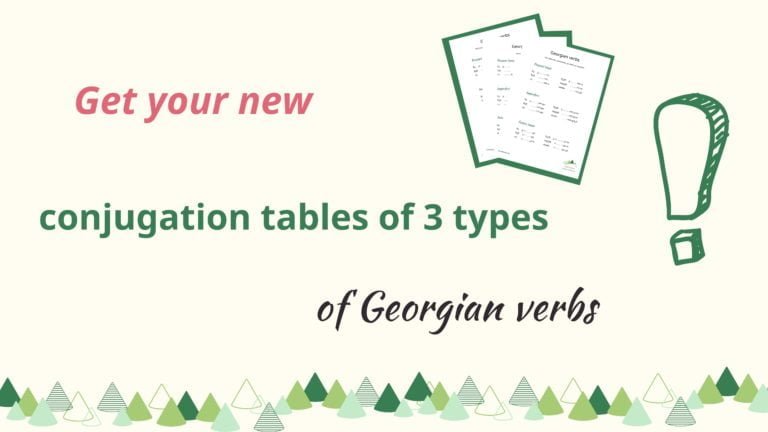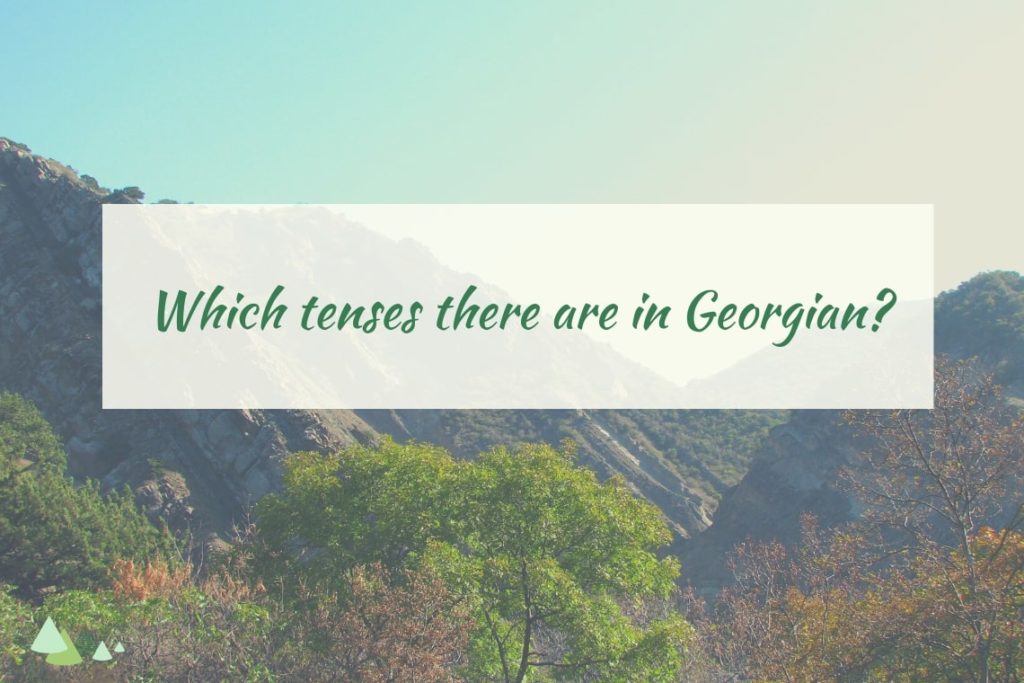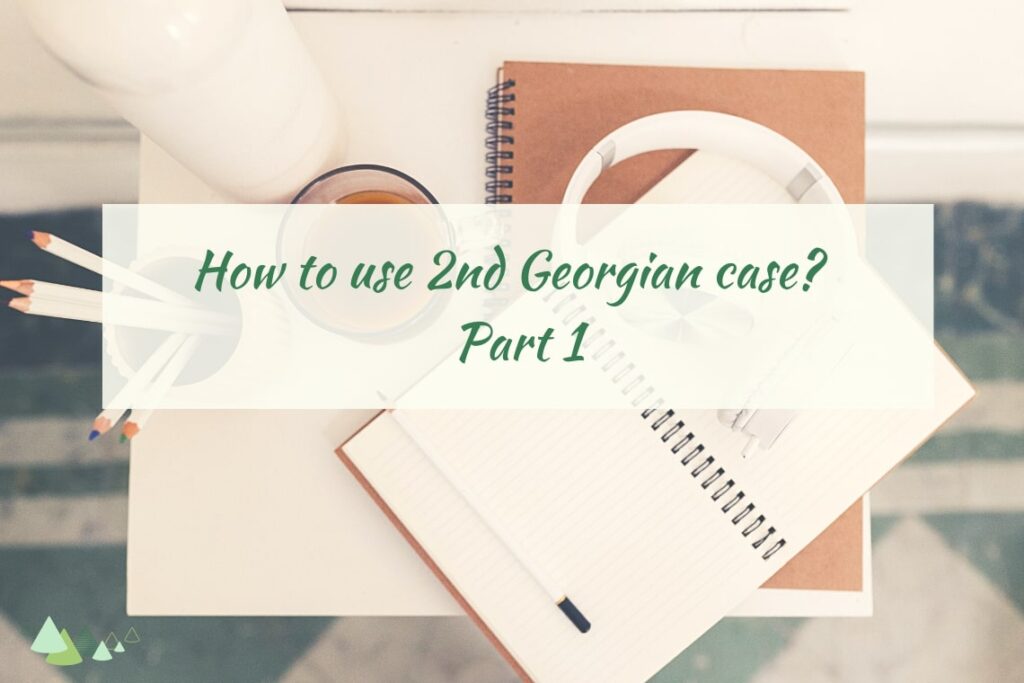Aorist in Georgian – how to use it, create it and which cases to use for it? This post is all about the topic and we focus on verbs like do and work. Check it out!
Let’s start with explanation about the naming convention of this form. The linguistic English name that is often used is aorist for this form of verb. It is not exactly like past simple in English, but if you are at the beginning of your journey with Georgian and not linguistics professional the assumption that this form of the verb is quite similar to past simple may be of help.
Once we have this settled, let’s now dive into another topic. There are two forms of past tense in Georgian language: imperfect (similar to past continuous, უწყვეტელი წარსული დრო) and aorist (similar to past simple, წყვეტილი წარსული დრო). The first one, imperfect, was already described in detail in this article, so you can come back to it once finished with this one. Today we focus on the aorist part.
Additionally, if you want to start with more general view on Georgian tenses and verb forms, this article will be of use for you.
You may already know that Georgian verbs have a few groups of conjugation that is why today we’ll just focus on two of them: work/live type and do/spend time ones.
When to use aorist in Georgian?
I will just start with the good news. Especially at the beginning of your study of Georgian language you may assume that in many situations you use it exactly as past simple. Any actions that were already done and completed, will be used in aorist form. So actions in past that were not continuous, but done. The same if we want to ask if someone has already done something will be in aorist form.
It’s worth to remember that some verbs, e.g. to be or to have stay in just one past form, no matter if it was imperfect or aorist. From the meaning of the verb standpoint it is impossible to distinguish whether that was a continuous action or on completed in the past. For example: I had this book.
How to conjugate the Georgian verbs in aorist?
In this very post we focus on 2 types of verbs: live, work and do, spend time. In both cases the starting point is their form in future tense. Let’s then start with th first group:
- მე ვიმუშავებ – I will work
- შენ იცხოვრებ – you will live
Now the same persons in aorist (past simple) form will look as follows:
- მე ვიმუშავე
- შენ იცხოვრე
As you may see the ending -ებ is deleted and this place is being taken by the following:
მე ვ- ……- ე
შენ ………-ე
მან ……….-ა
ჩვენ ვ- …… – ეთ
თქვენ ……..-ეთ
მათ ……. -ეს
As far as the second conjugation group is concerned the endings are exactly the same. The only difference worth remembering is that the verbs like do or spend time have prefixes in future tense. That is why those prefixes should be used as well in the aorist form:
- მე გავაკეთებ changes into მე გავაკეთე
- შენ გაატარებ changes into შენ გაატარე
Which Georgian cases are connected with aorist?
Maybe the question about cases has already appeared in your head the moment you saw the conjugation endings in the previous paragraph. The aorist form (for those two verb groups) requires second Georgian noun, Ergativ. For this reason the subject in aorist stays in 2nd case. Similar to how it goes in Dativ, only 3rd person singular and 3rd person plural look different, so ის changes into მან and ისინი changes into მათ.
How does it impacts the direct object in Georgian sentences? Maybe you remember that in present, imperfect and future forms these verb types required direct object in 3rd case, so Dativ. Now it changes and the direct object will be in 1ts case, so Nominativ. The example may be like that:
ის საშინაო დავალებას გააკეთებს – He/she will do his/her homework
changes into
მან საშინაო დავალება გააკეთა – He/she did his/her homework.
More about the Ergativ itself we’ll prepare in a separate post that will be published quite soon. You can join our newsletter – The Caucasian Mail – and make sure not to miss it.
Check your knowledge
If you want to check your new knowledge do the below quiz. The quizzes are published first on our InstaStory and Facebook profiles and then they are published under the posts. The answers you’ll find below.
Choose the correct form:
- გავაკეთე – მე or მემ
- გააკეთა – მან or მას
- გავაკეთეთ – ჩვენ or თქვენ
- მათ – გააკეთეს or გააკეთენ
- … გააკეთე? – რა or რას
- მე ….. გააკეთე – ეს or ამას
How many do you know?
Answers:
- გავაკეთე – მე
- გააკეთა – მან
- გავაკეთეთ – ჩვენ
- მათ – გააკეთეს
- … გააკეთე? – რა
- მე ….. გააკეთე – ეს




